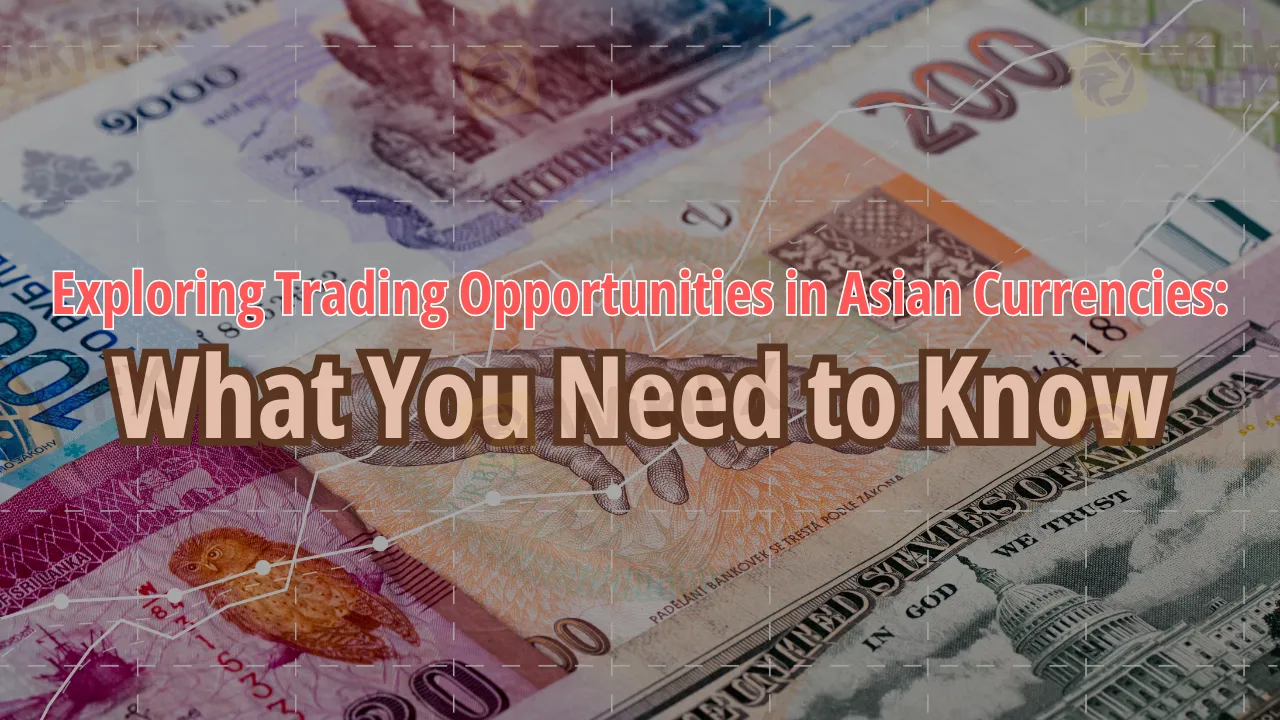简体中文
繁體中文
English
Pусский
日本語
ภาษาไทย
Tiếng Việt
Bahasa Indonesia
Español
हिन्दी
Filippiiniläinen
Français
Deutsch
Português
Türkçe
한국어
العربية
Exploring Trading Opportunities in Asian Currencies: What You Need to Know
Abstract:Explore trading opportunities in Asian currencies, including the volatile Hong Kong dollar (HKD) and the resilient Singapore dollar (SGD). Discover the factors influencing these currencies, from geopolitics to economic policies, and why they're gaining attention from Wall Street Journal.

Have you considered going to the East in your search for intriguing trade opportunities? While many investors concentrate on gold and oil, Asian currencies have a lot of promise that goes unrecognized. In this article, we'll take a look at the fascinating world of Asian currency trading, focusing on the Hong Kong dollar (HKD) and the Singapore dollar (SGD). Let's take a look at the key insights and opportunities in this fast-paced industry.
Understanding the Asian Currency Market
Because of their volatility, Asian currencies and equities have recently been in the limelight. Understanding the causes of these shifts, on the other hand, might be difficult. Some of the topics that have received a lot of attention include:
1. Geopolitical Events: The continuing war between Russia and Ukraine has reverberated across global markets, particularly Asian currencies.
2. Monetary Policies: The US Federal Reserve's attempts to counteract increasing inflation by boosting interest rates may have an effect on currency prices since investor sentiment is influenced.
3. Supply Chain Disruptions and Oil Prices: Recent supply chain concerns, as well as the spike in oil prices, have influenced the dynamics of the Asian currency market.

Hong Kong Dollar (HKD) Volatility
One of the Asian currencies that has attracted attention is the Hong Kong dollar (HKD). In the earlier part of the year, it appeared stable. However, on May 8th, HKD experienced significant volatility. It plummeted from 7.84 HKD against the US dollar to 7.79, only to bounce back to 7.84 within a day. Such unexpected movements can present both risks and opportunities for traders.
Strength of the Singapore Dollar (SGD)
The Singapore dollar (SGD), on the other hand, showed tremendous strength, increasing by 3.82% versus the US dollar, going from 131 to 136. The strategy of the Monetary Authority of Singapore (MAS) is the major rationale for this strength. Instead of altering interest rates, the MAS has concentrated on exchange rates, which has had a significant influence on the performance of the Singapore dollar.
Trading Opportunities and Considerations
It is essential to be well-informed if you want to trade the Hong Kong dollar or the Singapore dollar. The HKD looks to be on a downward trend, but some analysts feel a turnaround is possible. SGD has reached its 2023 high, but the surge looks to be fading. Both currencies seem to be poised for possible shifts in trajectory, making them hot commodities for traders.
Wall Street Journal Analysis
For a comprehensive understanding of these Asian currency dynamics, consider referring to the Wall Street Journal. They recently reported on these market movements, offering valuable insights that can aid your trading decisions.
In conclusion, Asian currencies, particularly the Hong Kong dollar and the Singapore dollar, hold unseen opportunities for traders. While the market may appear complex, staying informed about geopolitical events, monetary policies, and local strategies, such as MAS's approach, can provide you with a competitive edge. So, cast your gaze on the East and explore the exciting world of Asian currency trading.
Stay updated with the latest news and market trends to make informed trading decisions. For further insights, you can also install the WikiFX App on your smartphone.

Disclaimer:
The views in this article only represent the author's personal views, and do not constitute investment advice on this platform. This platform does not guarantee the accuracy, completeness and timeliness of the information in the article, and will not be liable for any loss caused by the use of or reliance on the information in the article.
Read more

Currency Hedging Practices and How They Protect Traders' Interests
Forex trading is a happening place with massive currency trading for all five days of a week from Monday to Friday. You can't rule out losses while there are potentially high gains. That’s why smart traders employ effective currency hedging practices to offset losses. It can be your go-to method to deal with sudden price fluctuations that define the forex market. Read on to learn smart forex trading tactics.

ATFX Opens New Office in Cape Town's Portside Tower to Expand in Africa
ATFX inaugurates a new office in Cape Town, marking a key milestone in its African expansion, with dedicated teams to enhance local trading services.

Interactive Brokers Expands with Euronext Mini Stock Options
Interactive Brokers adds Euronext mini stock options for European investors, offering new hedging opportunities and smaller contract sizes for higher-priced stocks.

Interactive Brokers Enhance Account Security with FDIC Coverage
Interactive Brokers now offers up to $5M FDIC insurance for individual accounts, boosting protection on cash held in brokerage accounts starting May 2025.
WikiFX Broker
Latest News
IronFX Broker Review 2025: A Comprehensive Analysis of Trustworthiness and Performance
OctaFX Flagged by Malaysian Authorities
Nonfarm Data Lifts Market Sentiment, U.S. Stocks Rebound Strongly
Interactive Brokers Enhances PortfolioAnalyst with New Features
ATFX Opens New Office in Cape Town's Portside Tower to Expand in Africa
Why Your Worst Enemy in Trading Might Be You
Errante Broker Review
SFC Issues Restriction Notice to GA (Int’l) Capital Management Limited Over Regulatory Concerns
WikiFX Forex Community Expert AMA
Interactive Brokers Enhance Account Security with FDIC Coverage
Currency Calculator


